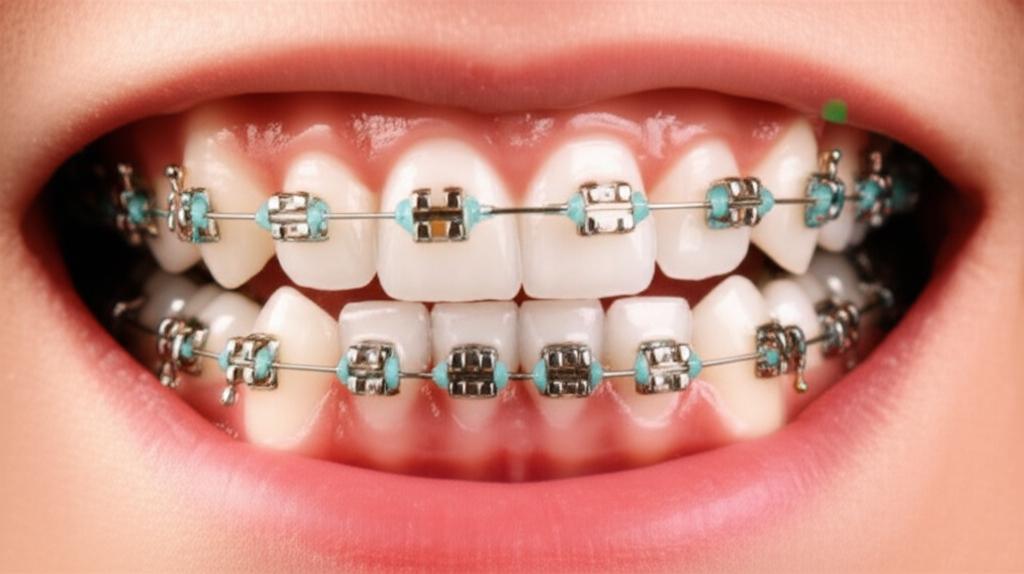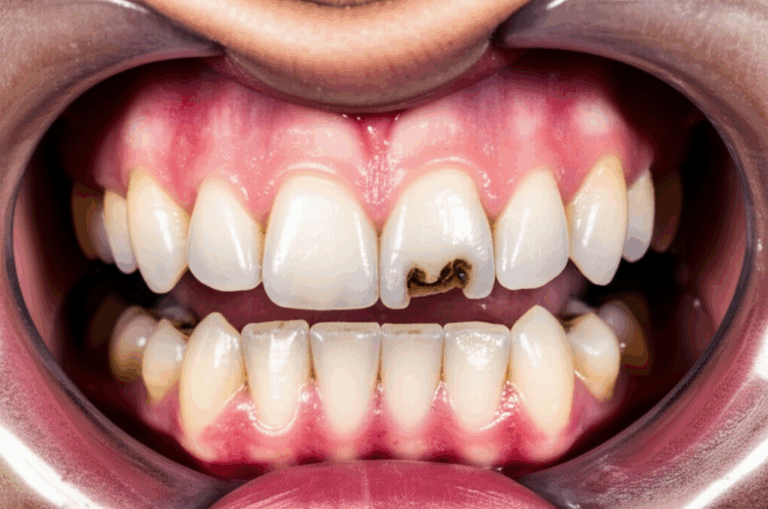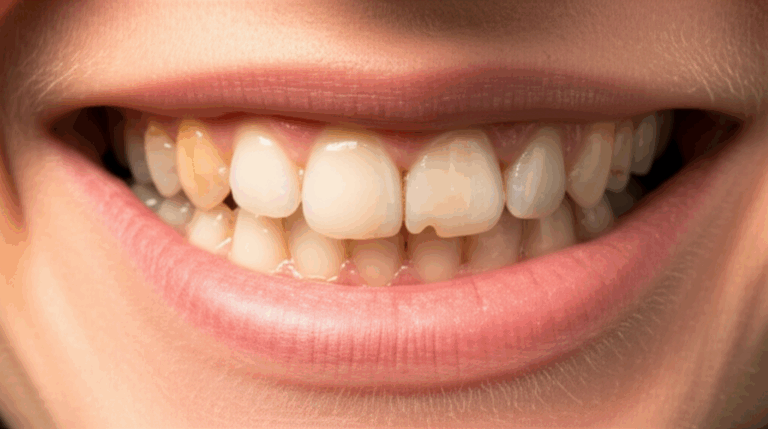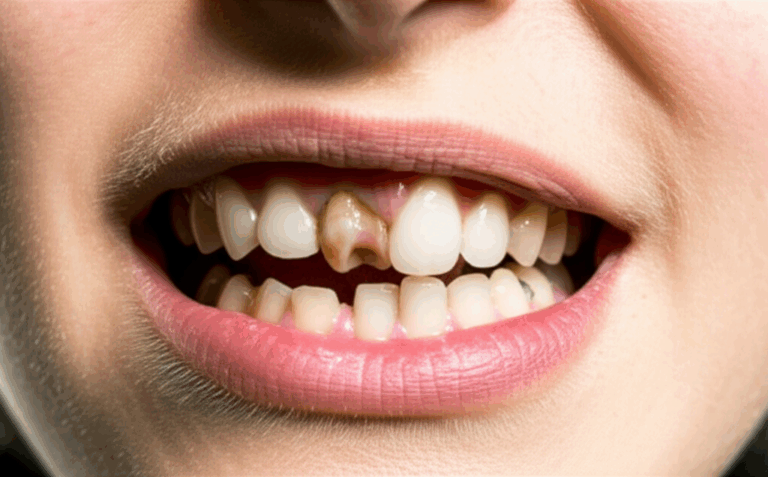
Can Braces Cause Dental Problems? Understanding the Real Risks and How to Avoid Them
By Someone Who’s Been There, Braces and All
Introduction: Facing the Truth About Braces
Let me be honest—braces can cause dental problems. That’s probably not what you want to hear if you’re about to start braces or already have them. I remember lying in bed after my first appointment, scrolling through websites and feeling pretty nervous.
But here’s the good news: Most of these problems can be stopped before they even start. Braces are meant to make your teeth and smile better in the long run. I’ll tell you the real risks, why they happen, and, most importantly, how you can avoid them. I’m not going to make things sound better than they are, but I’ll also share what worked for me and the big benefits I got in the end.
So, let’s jump in.
Table of Contents
- Common Dental Problems Linked to Braces
- Why Do These Problems Happen?
- How I Prevented Dental Issues With Braces (and What I Learned)
- What If Problems Pop Up? (Managing Issues)
- Benefits vs. Risks: My Honest Conclusion
- Frequently Asked Questions (FAQs)
- Final Thoughts
Common Dental Problems Linked to Braces
Braces are like little building sites in your mouth, and with all those extra corners and edges, cleaning gets a lot harder. From what I’ve seen and learned from my orthodontist, here are the main problems to look out for.
Decalcification (White Spot Lesions)
You know those weird white marks that can show up after the braces come off? That’s decalcification, or as my dentist called it, “a warning sign.” It happens when your tooth enamel loses minerals, usually because plaque hangs out around your brackets. These spots look chalky at first and can sometimes go away, but if you leave them too long, they’re stuck for good.
I nearly got white spots on my top teeth after not brushing well for two weeks. My orthodontist caught the early signs, and a strict fluoride routine saved me. Not everyone catches them in time, though.
Cavities
Braces make cleaning your teeth a lot harder. Food and plaque hide everywhere—those little spaces are magnets for crumbs, especially late at night (I know from experience). You’re about two or three times more likely to get cavities if your brushing isn’t great compared to people without braces. A lot of cavities start as white spots—see the pattern? Stopping it early is really important.
Gum Disease (Gingivitis and Periodontitis)
I never paid much attention to my gums until they got red, puffy, and sometimes bled after brushing. That’s gingivitis, and it’s super common with braces. Why? Plaque builds up where you can’t easily reach. If it gets worse, it can turn into periodontitis—a way bigger problem that can even mess with the bone in your jaw (really rare with braces, but not impossible).
Root Resorption
This one surprised me because you can’t see it in the mirror. Root resorption means your tooth roots get shorter, sometimes because of the pressure from moving your teeth. My orthodontist said most people get a little bit, usually not enough to matter—less than 2 mm. It’s only really a problem if you lose more than a quarter of your root length, which hardly ever happens (like 1–5% of people). Regular X-rays helped keep me safe.
Tooth Sensitivity and Discomfort
There’s really no way around it—braces can make your teeth hurt, especially after they get tightened. Sometimes the sensitivity lasts longer, mostly in spots with white marks or tiny cavities starting. For me, it settled down after a week or two, but if the pain sticks around, tell your dentist.
Enamel Abrasion or Erosion
Not as common, but enamel can wear down if you brush too hard (especially with a hard brush) or eat a lot of sour snacks and drinks. The brackets themselves, these days, don’t really scrape enamel much. For me, the big thing was learning to brush gently but well.
Why Do These Problems Happen?
After years of checkups and looking stuff up after braces, I found out the big reasons are mostly things we can change. Here’s what stood out to me:
Not Cleaning Well Enough
This is the main reason. Cleaning around wires and brackets really does take work. Skipping brushing or flossing means bacteria win. I learned this after my first month, when my gums ballooned up and my hygienist had to give me “the talk.”
What You Eat and Drink
Eating candy, drinking soda, snacking on crackers—all dump sugar and acid in your mouth. Braces trap even more food, and if you don’t clean really well, your risk for problems goes way up. I swapped my soda habit for water and caused way fewer problems (plus, I had fewer emergency visits for broken wires).
Longer Time Wearing Braces
It makes sense—the longer you have braces, the more chances for problems. If you follow your orthodontist’s plan and don’t mess with your appliances, you’ll keep things moving faster.
Old Dental Problems
Always get a full dental check before starting braces. If you already have cavities or gum problems, braces can make those worse. My friend had to stop braces for six months to deal with tooth decay first.
Doing What You’re Told
Your orthodontist does their part, you have to do yours. Skipping instructions, not wearing rubber bands, or missing appointments leads to trouble. I asked LOTS of questions and tried to follow directions carefully. My teeth thanked me.
How I Prevented Dental Issues With Braces (and What I Learned)
Let me share what actually worked for me—and for others I met along the way. Here’s what I did every day, plus my best tips.
My Brushing and Cleaning Plan
Smarter Eating
Sugary food and sour drinks became just “sometimes” foods. I sliced apples thin (biting big apples can break wires), and I skipped gum and sticky candy. Braces problems went way down when I stopped fighting these rules.
Dentist Visits
Don’t just see your orthodontist—keep seeing your regular dentist. I went every three months for cleanings and a shot of fluoride. My dentist saw plaque I completely missed.
More Fluoride
I got a stronger fluoride toothpaste. It made my enamel tougher and stopped new white spots.
Fix Problems Fast
Any pain or weird white spots meant I called my dentist or ortho right away. Never ignore a sharp pain or anything that just feels wrong—sometimes it’s a sign of a bigger deal.
What If Problems Pop Up? (Managing Issues)
Even when you do your best, things can still go wrong. Here’s what I found actually helps if something does happen.
Dealing With White Spots
If you catch them early, using fluoride and brushing really well can sometimes fix them. If not, your dentist can do things like resin infiltration or microabrasion to help them fade. My friend got rid of stubborn white spots using these and a veneers lab.
Fixing Cavities
You don’t have to wait until the braces are off. Little cavities can be filled even with the brackets on, but bigger ones sometimes need more work. Modern fillings work fine with braces. If you want to know about big repairs, a crown and bridge lab has a lot of info about what’s possible.
Solving Gum Problems
Step one: brush and floss better. Usually, bleeding and swelling stop after about a week, just like my dentist said. If not, you might need a cleaning at the office or special mouth rinses.
Watching for Root Resorption
Your orthodontist will check your roots with X-rays. If there’s a problem, they might slow things down or make changes. Most of the time it’s mild and doesn’t cause trouble.
Benefits vs. Risks: My Honest Conclusion
Here’s my truth, after living through braces and talking to lots of friends with them: Yes, there are problems—but almost every single one can be avoided. With a good cleaning plan, eating smart, and keeping in touch with your dental team, you can stop almost every big problem.
Was it hard sometimes? For sure. Was it always fun? Nope. But I finished with a straight, healthy smile and learned a ton about taking care of my teeth. It was worth it.
Remember, knowing what might happen is your best protection. If you start braces ready to face these risks (and know the fixes), you’re ahead of the game.
Frequently Asked Questions (FAQs)
Can braces cause serious or lasting problems?
If you skip brushing or don’t see the dentist, you can have problems like enamel loss or gum issues that won’t just go away. But if you catch things early and follow the advice, most problems disappear.
How often should I brush and floss with braces?
After every meal is best. Try for at least three times a day. It’s not about being perfect, just being regular.
Can white spots go away after braces?
Many times, yes. Early white spots may fade with extra fluoride. If they don’t, your dentist might use special treatments from a dental ceramics lab.
Do braces always shrink tooth roots?
Almost everyone has a tiny bit, but bad cases are really rare. Regular X-rays catch problems early and help keep risk down.
Who should I go to if I have problems with my braces?
Start with your orthodontist for anything with wires or brackets, but don’t hesitate to call your regular dentist for fillings, cleanings, and gum issues. They work as a team for your full dental care.
Final Thoughts
If you’re getting braces or already have them, don’t let fear win. Learn what to do and get into good habits, and your mouth will thank you for years. Every bit of work is worth it. And who knows? You might become the person everyone asks about teeth in your family or friend group.
For more help on taking care of your teeth, check out these pages on teeth health and keep looking out for your smile!








